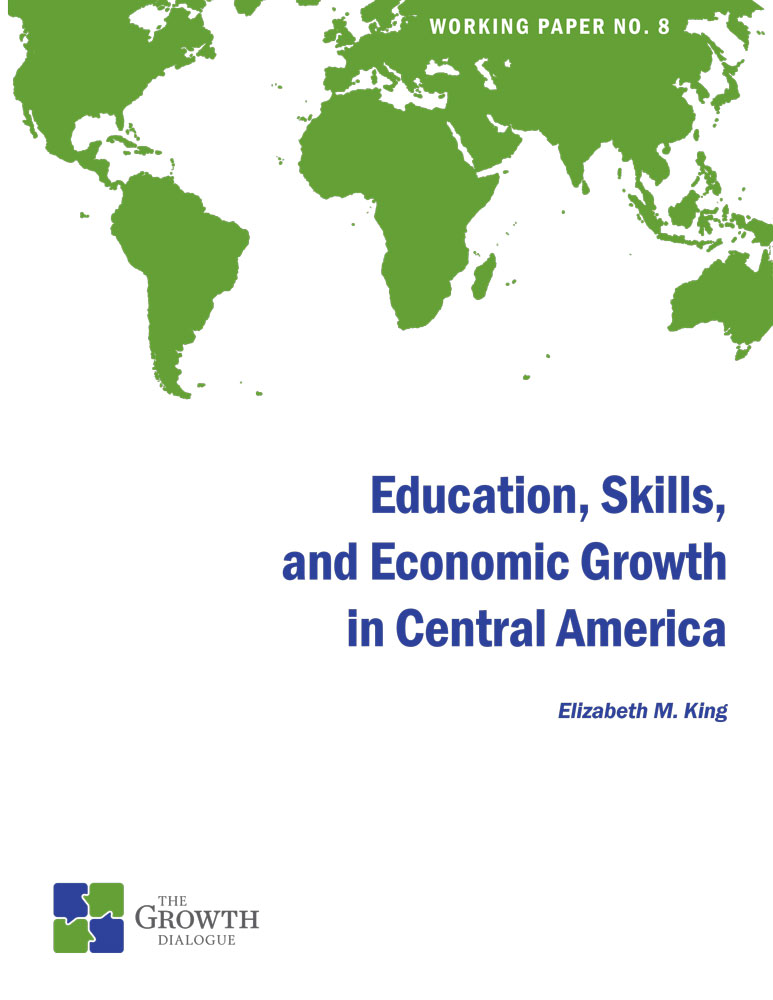 Working Paper No. 8
Working Paper No. 8
Education, Skills, and Economic Growth in Central America
Author: Elizabeth M. King
Evidence demonstrates that education contributes to economic development, lowers poverty and inequity, and improves lives. A solid foundation of reading, writing, and basic math learned in school can equip young people with a set of competencies and skills, behaviors, and attitudes, as well as a sense of cooperation and social responsibility, that enables them to participate in society as productive workers and responsible citizens. This paper focuses on two broad questions – whether Central American countries have the human capital that is able to accelerate their economic progress, and what approaches they can take to improve their human capital development. The paper situates the challenge of skills development facing the region by comparing it with recent developments in established and emerging economies in East Asia. In particular, it discusses the implications of this challenge for the education system in Central American countries. The paper considers whether their education systems are poised to unleash students’ academic performance, creativity, and innovation, and how governments can support educational institutions with an enabling environment.
Download:
Education, Skills, and Economic Growth in Central America
Stay up to date with the latest news and insights from The Growth Dialogue
© 2017 The Growth Dialogue